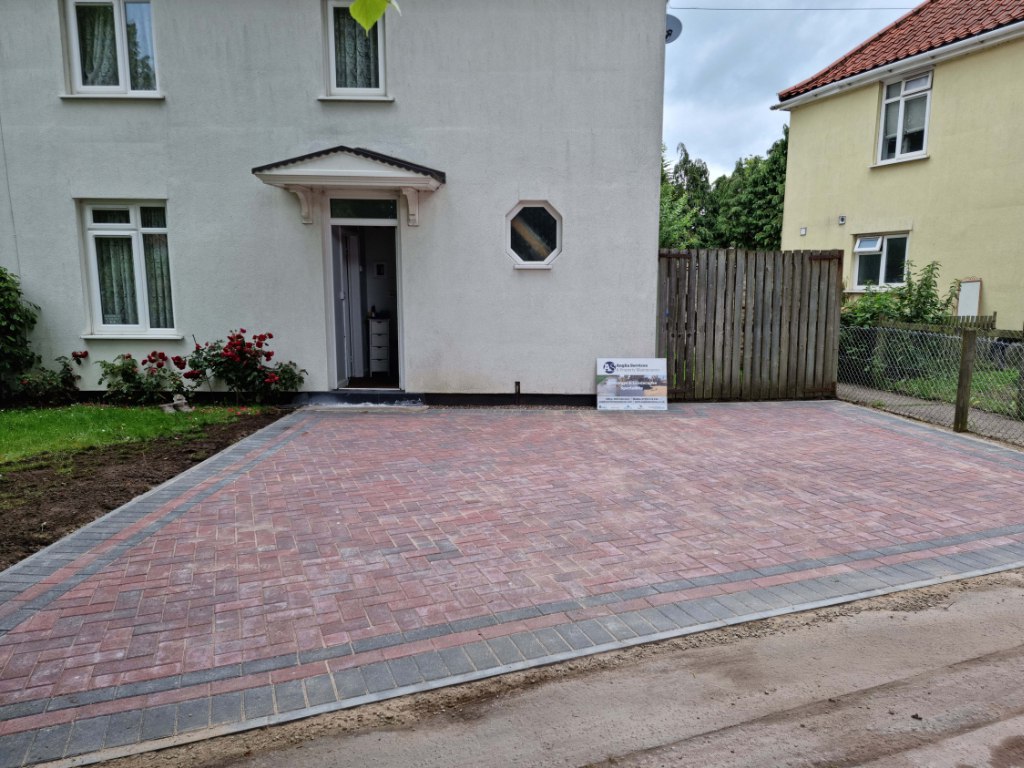What to Do If Your Block Paving Starts to Sink
Block paving is a popular choice for driveways in March, Cambridgeshire, due to its durability, versatility, and aesthetic appeal. However, like any surface, it can experience wear and tear over time. One of the most common issues homeowners face with block paving is sinking, which can create unsightly dips and potentially cause trip hazards. Understanding what causes block paving to sink and how to address it can help you maintain a safe and visually appealing driveway.
In this blog post, we’ll explore the reasons why your block paving may be sinking, the signs to look out for, and what you can do to fix the problem. Whether you’re a new homeowner or someone looking to maintain your current driveway, this guide will provide you with the information you need to keep your block paving in top condition.
What Causes Block Paving to Sink?
Sinking block paving can occur for a number of reasons, most of which stem from problems with the foundation or sub-base of the driveway. When the ground beneath the paving is not properly prepared or when the materials used are of poor quality, it can lead to uneven surfaces and sinking over time.
Common Causes of Sinking Block Paving:
- Poor Installation: If the paving wasn’t installed correctly, the sub-base might not have been compacted properly, leading to shifting and sinking.
- Insufficient Sub-Base: The sub-base, which is the layer of material beneath the paving blocks, plays a vital role in providing support. If it’s not thick enough or made from low-quality materials, it can settle over time, causing the blocks to sink.
- Water Damage: Poor drainage can cause water to pool beneath the paving, leading to erosion of the sub-base and eventually causing the blocks to sink.
- Heavy Traffic: Frequent or heavy traffic can put stress on the driveway, leading to displacement and sinking of the blocks, especially if the foundation was not designed to withstand such load.
- Tree Roots: In some cases, tree roots growing underneath or around the driveway can push the blocks up or cause shifting, leading to uneven surfaces.
Signs That Your Block Paving Is Sinking
It’s important to regularly inspect your block paving to catch issues early. Sinking can cause both aesthetic and functional issues, and addressing it sooner rather than later can save you money in the long run.
Signs to Watch For:
- Visible dips or low spots: If you notice areas where the surface is uneven or dips noticeably, this is an indication that the paving may be sinking.
- Pooling water: Water that doesn’t drain properly or accumulates in certain spots can be a sign of sinking, as the surface no longer allows for proper water runoff.
- Loose or displaced blocks: If individual blocks start to loosen or shift out of place, it may be due to movement in the sub-base, which could be causing sinking.
- Cracked paving: Sinking areas can put stress on the surrounding blocks, leading to cracks or breakages.
How to Fix Sinking Block Paving
While a professional driveway contractor is often the best option for repairing sinking block paving, there are some measures that can be taken to address the issue.
1. Assess the Cause of the Sinking
The first step in fixing sinking block paving is to identify the root cause. If it’s due to poor installation, water damage, or an insufficient sub-base, it will require a more thorough repair. If the issue is relatively minor, such as a few displaced blocks, it may be a simpler fix.
- Check for drainage issues: Ensure that your driveway has proper drainage to prevent future water damage.
- Inspect for tree root damage: If tree roots are causing the problem, they may need to be removed or redirected.
2. Re-level the Area
Once you’ve identified the problem, the next step is to lift and re-level the affected area. This may involve lifting the paving blocks and re-compacting the sub-base beneath them.
- Lift the blocks: Carefully remove the affected paving blocks and set them aside.
- Recompact the sub-base: If the sub-base is uneven or has settled, you’ll need to compact it again to restore stability.
- Add new material if necessary: If the sub-base has eroded, you may need to add new materials, such as crushed stone or gravel, to provide a solid foundation.
3. Replace Damaged Blocks
If any of the paving blocks have become cracked or broken due to the sinking, they should be replaced. Replacing damaged blocks will not only restore the appearance of your driveway but also prevent future problems.
- Select matching blocks: Ensure the replacement blocks match the existing ones to maintain a uniform appearance.
- Ensure proper placement: Once the sub-base has been compacted and re-leveled, lay the new blocks into place, making sure they fit securely.
4. Re-Sand and Seal the Surface
After re-laying the blocks, it’s important to refill the joints with sand to lock the blocks into place. You can also consider applying a sealant to protect the surface and prevent water damage in the future.
- Re-sand the joints: Spread kiln-dried sand over the surface and sweep it into the joints to secure the blocks.
- Seal the driveway: Applying a sealant will help prevent future damage and prolong the life of the driveway.
Why Hire a Professional for Block Paving Repairs?
While it’s possible to fix minor issues with sinking block paving yourself, it’s often best to hire a professional to ensure the repair is done correctly and lasts long-term. A professional driveway contractor will have the experience and equipment needed to properly assess and fix the issue.
Benefits of Hiring a Professional:
- Expertise: Professionals can quickly identify the cause of the sinking and determine the best course of action.
- Quality materials: They use high-quality materials to ensure the driveway is properly supported and protected.
- Long-lasting results: A professional repair ensures the issue won’t reoccur, saving you money in the long run.
- Safety: Professional contractors have the right tools and safety equipment to perform the repair safely and efficiently.
Conclusion
If your block paving is sinking, it’s essential to address the problem promptly to avoid further damage and ensure the longevity of your driveway. Whether the issue is due to poor installation, water damage, or tree root intrusion, taking the necessary steps to repair the sinking will help maintain the functionality and appearance of your driveway.
At March Driveways, we specialise in driveway repairs and maintenance in March, Cambridgeshire. If you’re experiencing issues with sinking block paving, our experienced team can assess and repair your driveway to restore its beauty and safety. Contact us today for a professional consultation and let us help you maintain a driveway that lasts.
Call us on: 01354 707 465
Click here to find out more about March Driveways
Click here to complete our contact form and see how we can help with your driveway needs.

